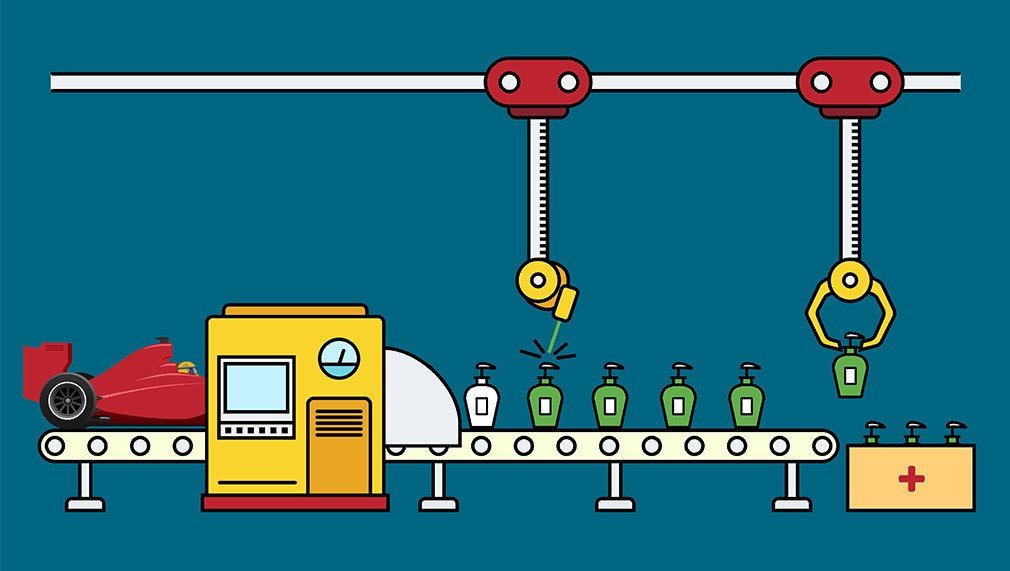
Well, 2020 hasn’t entirely gone to script, has it? But as kiwis do, we pick ourselves up and show solidarity and fortitude when faced with adversity. Covid-19 has brought the globe to its knees, with our daily lives a shadow of what they were a few weeks back, at least for the foreseeable future. Business, education, sports and manufacturing have largely been placed on hold, as our governments and communities grapple with containing the virus.
This invisible enemy has caused a strain on even the best health systems around the world. Basic protection, sanitisation and respiratory equipment have been in short supply, much to the stress of front line workers and the general public alike. However, in times of crisis there are tales of design and innovation; examples of big and small businesses that have responded to the call and adapted their resources for the benefit of others.
‘Enter stage right’: Fashion Houses, Formula One teams, Breweries and Apparel Manufacturers. On any other day, Louis Vuitton and Good George Brewing would unlikely be referenced in the same sentence. However, sharing the common threat of Covid-19, and both with a desire to help their own communities, they have re-geared their own manufacturing facilities to produce hand sanitiser to fulfil a shortage.

LVMT (Louis Vuitton Moet Hennessy) required a mere 72 hours to reconfigure one of their factories to respond to the French governments call out for help to fill gaps in medical supplies. Dior bottles destined for the shelves of the Champs-Élysées, now contain sanitiser and are heading for 39 hospitals across the Parisian region.
Similarly, albeit a little closer to home, Good George brewing in Hamilton had the idea of producing 1000 litres of hand sanitiser using a whiskey distillery, after they had trouble sourcing it for their staff and customers.
Cactus Outdoor, based out of Christchurch, have also entirely repurposed their manufacturing facilities to alleviate a shortage in supplies. They are producing N95-protection level masks out of their warehouse, which would usually be producing specialist clothing and uniforms for a range of emergency clients.

There are many stories of companies putting their hands up to assist through innovation, especially where their own workers and communities livelihoods have been compromised because of COVID-19. While the protective equipment and sanitisation goods they are creating are great pre-emptive measures to protect both workers and the wider population, there are other challenges at the sharp end of the front line where people are critically ill and in overwhelming numbers. Respirators have become a crucial tool for assisting those who are most unwell, but there are unfortunately fewer than are required to support the sheer volume of people.
How can a world class healthcare system like in Italy, remotely respond to the acceleration of this virus? They accept the support and innovation of their own companies, just like we are seeing elsewhere. In the absence of Formula 1 racing, and as a response to the situation quickly escalating in Northern Italy, Ferrari have teamed up with Fiat to make their technology available to help combat the national emergency. They are currently using their Maranello manufacturing plant to produce fans and respirations for local hospitals. That’s right; the pinnacle Italian name of automobile engineering has re-dialled its operation to assist with its crisis relief. A similar initiative has just been announced in the UK with Rolls-Royce teaming up with Airbus, Ford and Siemens to collectively harness their design and production assets to fast track the manufacture of 10,000 ventilators for UK hospitals.

There have been numerous questions asked why the world wasn’t better prepared for an outbreak like this, especially as the threat from infectious diseases is continually growing with an increasingly-connected global population. Unfortunately the answer is quite simple – the potential threat to economic stability from events like this has had very little attention from economic policy makers at an international level. It simply hasn’t stacked up financially, which is ironic given we are currently watching the global economy nosedive.
However, the innovation and agility that we are witnessing from companies across the globe, has given me hope – hope that this realisation of a common threat, and one which has ground the world to a halt, has also challenged how businesses can positively adapt when faced with adversity. Can this adaptation, and the sub sequential circumnavigation of this economic hurdle, be built into crisis response in future? Drawing on the innovation and manufacturing power of our most talented companies in times of need, has proven to be lifesaving. It has fuelled wider thinking about the role of design and manufacture – and the possibilities that these present.
When economies are stopped in their tracks, these ‘potential events’ suddenly have very tangible consequences for our governments and big businesses. Ceilings and preconceptions are instantly pushed, and there is a new air of what is achievable. Maybe this unfortunate event is the catalyst to better prepare for an uncertain future; one where infectious diseases and climate challenges will command more attention.
Andy Florkowski
Associate Director
RCG – Architecture & Property: Together By Design.




